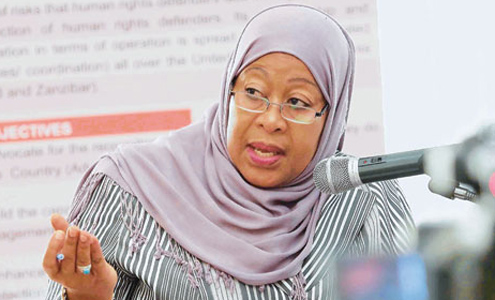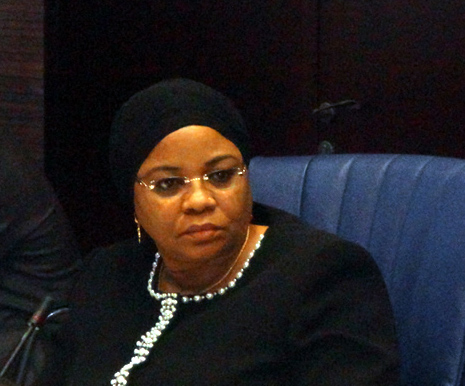Dr. Natu Mwamba said research had shown it was now time banks and other financial services providers in Tanzania started creating products that were more “woman friendly”, particularly at the bank agency level where this demographic group was more likely to be reached.
Research has also shown that women borrow from informal services compared with men. They trust in and have confidence in the informal providers which research has shown is partly because the informal providers are able to meet the demand of women cash-flow needs, and their volatile and sporadic nature becomes easily accommodated in the informal providers. Can the formal providers mimic this? Can digital technology tap into this opportunity? Yes, they can.
By Jaston Binala.
Women constitute an untapped financial services market in Tanzania, according to research which has suggested banks and their agencies, micro-finance Institutions (MFIs) and digital financial services providers could benefit from increased focus on women.
This was the gist of discussions during a recent high level conference on women financial inclusion in Dar e Salaam. The conference was jointly organized by the US funded Alliance for Financial Inclusion (AFI), the Tanzania Financial Sector Deepening Trust (FSDT) and the Bank of Tanzania.
“It is time that special attention be given to women to enable them exploit potential hidden in them for faster economic growth and poverty reduction,” Samia Suluhu Hassan, Tanzanias Vice President said at the conference.
The Deputy Governor of the Bank of Tanzania, Dr. Natu Mwamba said research had shown it was now time banks and other financial services providers in Tanzania started creating products that were more “woman friendly”, particularly at the bank agency level where this demographic group was more likely to be reached.
Strides have been made in the country to make financial services accessible to women following the launching of the National Financial Inclusion Framework in December, 2013 but many challenges still remain that must now be addressed, the Deputy President said.
“It is of interest to note that slightly over half of Tanzania population is female, which contributes 53.3 per cent of the total workforce (15-64 years),” Samia Suluhu Hassan said. “Women contribution to the social-economic development is, however, not reflected into opportunities accessible to them.”
Dr. Mwamba argued the womens case: Women, like men, manage their financial needs by using financial services. But there are differences based on the needs to address cash flow, risk management, asset building and investments in productivity. Each of the gender has its own unique strengths, an opportunity for financial institutions to develop specific interventions for women to suit their traits.
Women are strong in prioritizing payments for utility bills, medical expenses, cooking fuel, source of lighting and rent compared to men, the Deputy Governor said.
“Women tend to save for a purpose and would use their savings as coping mechanisms than resort to borrowing, compared with men. 50% of men would borrow when faced with a risk while 43.4% of women would do the same. This indicates that, risk instruments such as micro-savings, micro-insurance and others can be more appealing to women,” Dr. Mwamba said.
The drivers of women savings are more skewed towards smoothing out cash flows in terms of living expenses, education or school fees, medical expenses, and other social expenses. It is therefore imperative that the supply-side meet women on provision of financial services that are able to address such fluid cash flow needs. Digital financial services offer such opportunity, she said, but there is a challenge:
Statistics in Tanzania have shown that in terms of connectivity women own less mobile phones (53.2%) compared with men (70.5%) although many women have access to other peoples mobile phone service (91%). Dr. Mwamba argues this creates a precedent for effort to create incentives to have more women have direct ownership of mobile phones.
Research has also shown that women borrow from informal services compared with men. They trust in and have confidence in the informal providers which research has shown is partly because the informal providers are able to meet the demand of women cash-flow needs, and their volatile and sporadic nature becomes easily accommodated in the informal providers.
“Can the formal providers mimic this? Can digital technology tap into this opportunity? Yes, they can. We are already seeing in-roads to this through partnerships that provide micro loans, via banks and MFIs with Mobile network providers. But more needs to be done, “Dr. Mwamba said.
There is yet another challenge, the conference was told. When a woman gets married, her maiden name is swallowed by the new name, in many cases denying her the individual identy for bank loan purposes.
“We are working on National Identification, and we hope that [the] women aspects will be considered in the process of registration and issuance of the IDs,” the Deputy Governor said.
Sarah Iqbal, a World Bank official present at the conference argued the financial institutions KYC (Know Your Client) requirement during loan process can act as a hindrance to women’s financial inclusion and so the indefication of women may have to be treated as a special case during loan processing.





